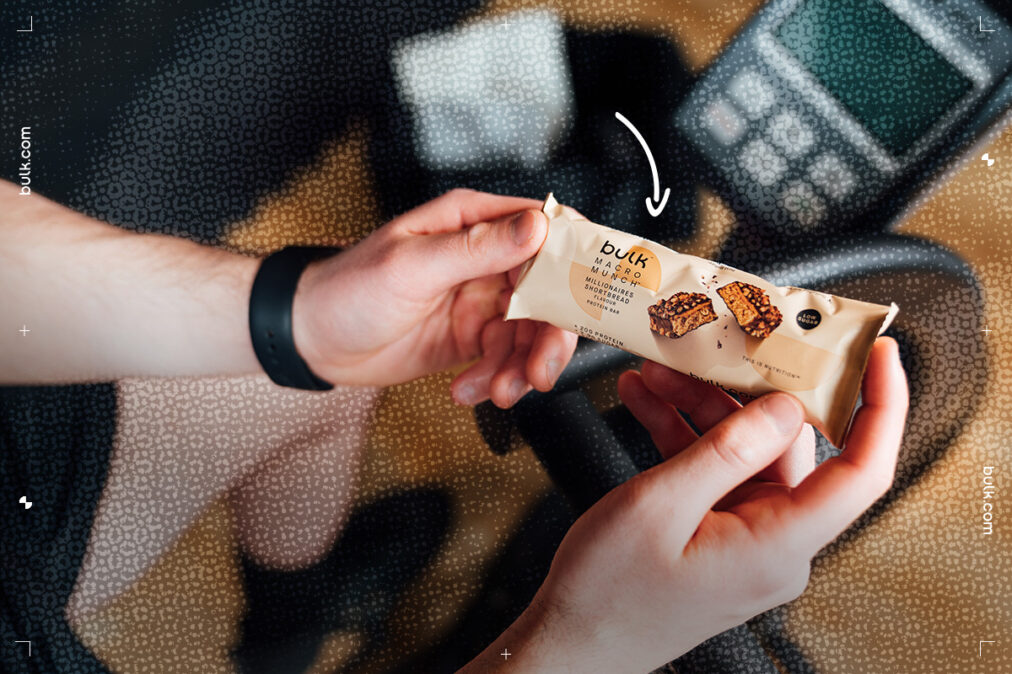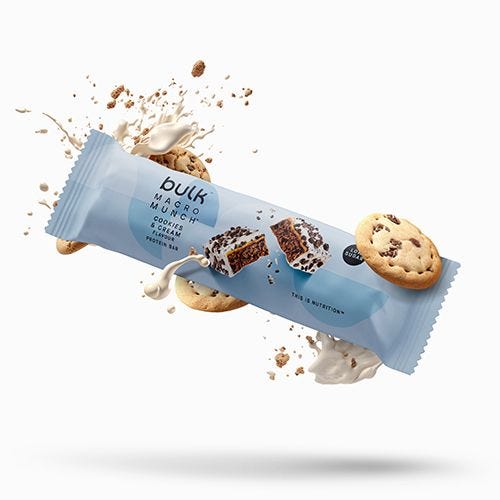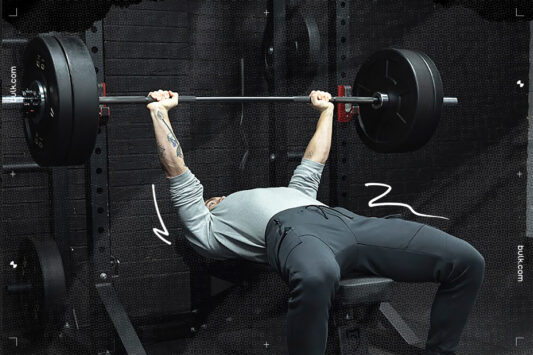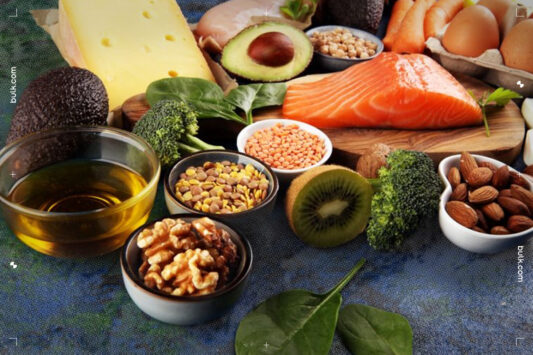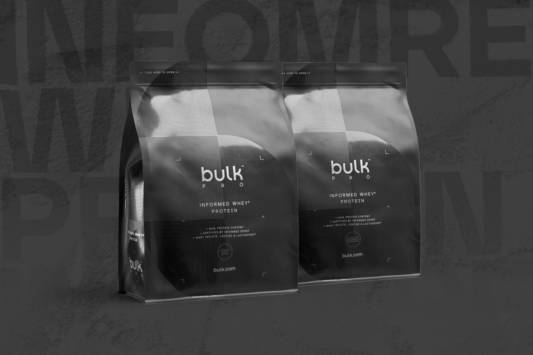Protein bars are a popular and convenient way to add protein to your diet, but are protein bars good for you? Many people eat them as alternatives to sweet treats, but are they really much better than your standard confectionery products? And if you don’t usually eat confectionery products, are protein bars a good addition to your diet? Today we answer these frequently asked questions for you.
Protein bar nutrition
Whether protein bars are good for you or not depends on a number of factors. This includes your diet, your level of exercise and your personal goals. One thing’s for sure though – it’s always good to check the nutritional information before you buy.
To help you find the perfect match to achieve your goals and fit into your lifestyle, here’s a table of some protein bars from our MACRO MUNCH™ range. This gives you a guide on what the nutritionals look like.
| Protein Bar Flavour | Protein | Carbs | Fat | Sugar | Fibre | Calories |
|---|---|---|---|---|---|---|
| Millionaires Shortbread | 20g | 21g | 8.4g | 2.9g | 6.7g | 232kcal |
| Salted Caramel | 20g | 20g | 8.1g | 3.1g | 6.0g | 225kcal |
| Birthday Cake | 20g | 21g | 8.2g | 2.9g | 6.8g | 224kcal |
| Chocolate Hazelnut | 21g | 20g | 9.9g | 2.5g | 5.1g | 244kcal |
| Vegan Protein Bar (Choc Coconut) | 21g | 17g | 11g | 12g | 11g | 279kcal |
Potential benefits of protein bars
So aside from using them as a replacement for eating regular chocolate bars, are they a good addition to your diet? Here are some of the reasons why eating protein bars can be beneficial.
High in protein
Protein has been proven to contribute to the growth and maintenance of muscle mass.
If you’re a dedicated gym-goer looking to build muscle, or feel that you don’t get enough protein from your current diet, then protein bars are a convenient way to help boost your intake. For more information, see our Beginner’s Guide to Protein.
The majority of your protein intake should come from wholefoods, but protein bars are useful as a sweet alternative to other confectionery.
High in fibre
Many protein bars are a source of fibre or even high in fibre (6g per 100g).
Good alternative to other snacks
Protein bars are not only a good alternative to regular chocolate bars, but also have preferable macros to other snacks, such as crisps and sweets.
Getting into the habit of swapping sugary or salty snacks is a great way to add some extra protein into your diet, while satisfying a sweet tooth.
Versatile
There are many ways to get creative with protein bars.
For example, protein bars are great as porridge toppings to add some texture and extra protein to your breakfast. Just chop them up into cubes and spread them on top. Delicious.
Protein bars can also be used as embellishments for baking. Just look at this protein cookies recipe, where the bars are placed on top post-baking. A prime example of protein bar versatility.
How do protein bars compare to regular chocolate bars?
Protein bars are higher in protein
You might have guessed this one, but protein bars are higher in protein than regular chocolate bars, containing around 14g-21g protein. But how does this compare to regular chocolate bars?
Let’s use the Dairy Milk chocolate bar as an example. According to Cadbury’s website, these contain 3.3g protein per 45g bar. This is far less than an average protein bar, which has 14g-21g.
Protein bars often contain less sugar
As the NHS states, eating too much sugar can contribute to people having too many calories, which can lead to weight gain. It can also cause tooth decay.
Protein bars tend to contain less than 5g sugar per bar. In comparison, Dairy Milk chocolate bars contain 25g sugar. This makes protein bars a great alternative to standard chocolate bars, helping to keep those cravings at bay without consuming unnecessary sugar.
It’s worth mentioning that consuming sugar isn’t always a bad thing. It all depends on how much sugar you get from the rest of your diet and your level of physical activity.
But in general, if you’re stuck between the choice of eating a regular chocolate snack and a protein bar, protein bars are the better option due to their preferable macros.

Is it okay to eat a protein bar every day?
Protein bars can be used to increase your overall protein intake, but the majority of your protein intake should come from wholefoods. Eating a protein bar every day won’t cause any harm, but the main thing to consider is how they are fitting into your overall diet.
Wholefoods from a variety of sources are the best way to ensure you’re getting a full spread of amino acids and micronutrients that your body needs. The amount of protein your body requires also varies from person to person, as well as your level of activity.
More active people who are looking to build muscle at the gym generally require a higher protein intake than inactive people, in which case protein bars are a convenient way to increase this.
Another point to consider is your calorie intake versus energy expenditure. If you’re already at calorie maintenance, consuming protein bars on top of this could put you in a calorie surplus. If your goal is to gain weight, then great. But if not, you should ensure eating protein bars every day fits into the rest of your diet.
Lastly, many protein bars contain artificial sweeteners called polyols, giving you that sweet taste while reducing sugar content. Polyols limit the amount of bars you can eat, as excessive consumption of these may produce a laxative effect. This will be included on the packaging as a warning, so it’s best to check if you’re intending to eat more than two portions a day.
Are protein bars good for you after a workout?
It’s well established that protein contributes to growth and maintenance of muscle mass [1].
Enjoying a protein bar after a workout will likely give you around 20g protein. This protein is digested and broken down into amino acids, which your body absorbs and uses for all sorts of functions, including muscle protein synthesis [2].
Protein bars can be a convenient alternative to a protein shake. Many people like to keep one in their bag as a backup, in case they don’t have time to prepare a shake.
For more information on protein bar timings, see our blog which discusses ‘should you eat a protein bar before or after a workout?’.
Summary: Are protein bars good for you?
So, are protein bars good for you or not?
This all depends on your current diet, activity level and health goals. Protein bars may contribute to weight gain if you’re already consuming enough calories through your diet, and your energy expenditure is lower than your intake.
However, for active people who want to build or maintain muscle mass, a high protein diet could help you achieve your goals. Protein from whole foods are better, but protein bars can be a convenient, sweet-tasting alternative. If it’s a choice between eating protein bars or confectionary bars, protein bars are probably the better option.
We believe in encouraging everyone to find their passion for exercise. For more fitness content check out @bulk for recipes, ambassador workouts and gym tips and join our community of fitness lovers and foodies.
Related articles
Eager to learn more? We believe that every person, with support, has the right to transform their lives through fitness. That’s why we’ve put together hundreds of articles with expert advice, all to help you on your fitness journey.
| Cod liver oil benefits |
| Supplements that help with sleep |
| How do Nootropics work? |
| Bulk and Informed Sport |
| Bulking over winter |
| Types of protein powder |
| Protein shakes with milk or water |
